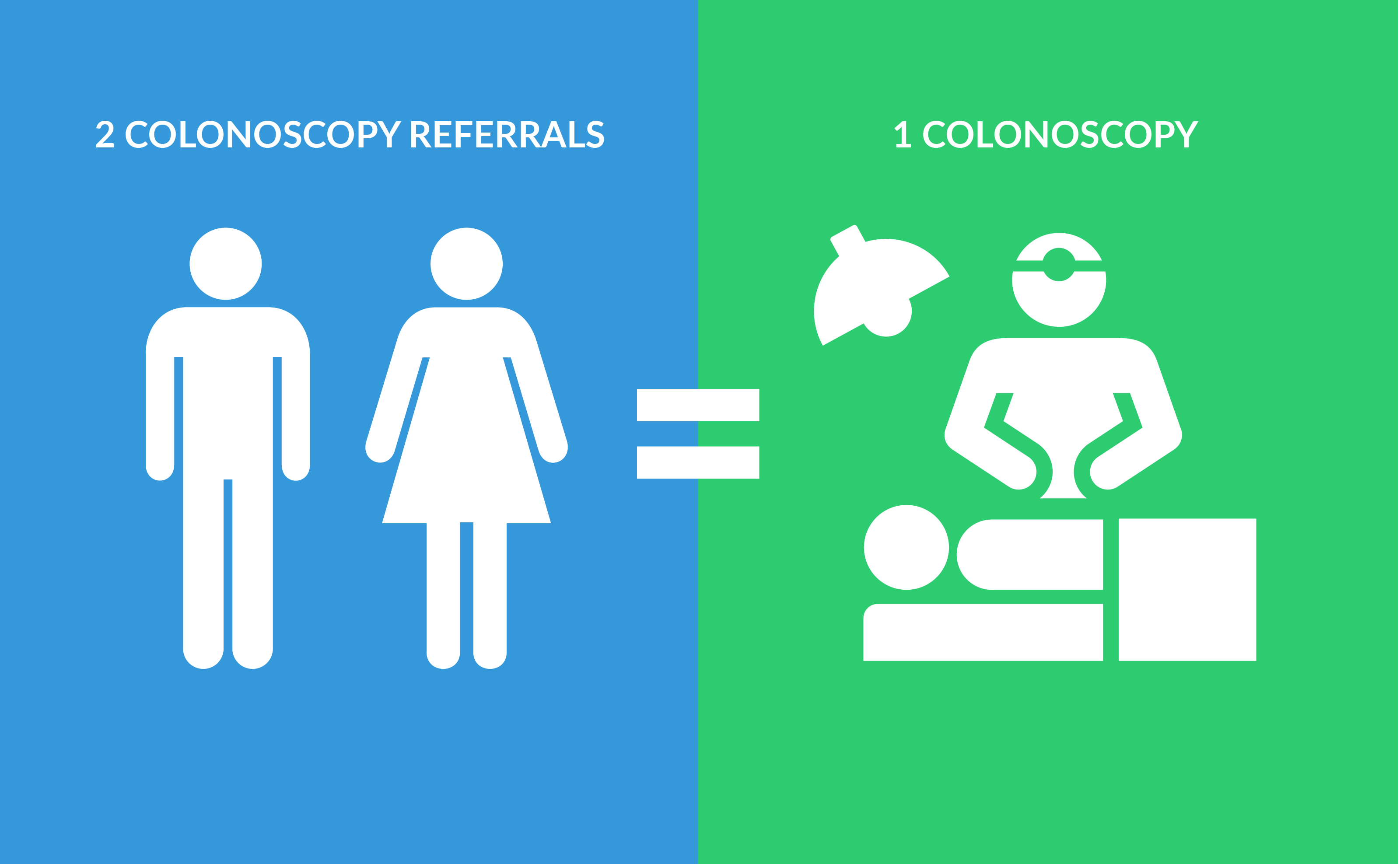
Electronic health record (EHR) rollouts are huge undertakings. It cost Massachusetts General Hospital $1.2 billion to shift towards Epic Systems’ EHR over the last three years. And the rollout has been complicated. They had to keep their old, homegrown systems running at the same time while they switched to their new EHR system. On top of that, they had to conduct extensive data conversions, testing and staff training.
Outpatient physician practices don’t fare much better with EHR rollouts. Outpatient EHR system implementations are estimated to cost $46,569 per physician. And one study of 49 PCP practices determined that the average 5-year return-on-investment of an EHR system was a loss of $43,743 per physician. 73% of the surveyed primary care practices demonstrated a negative ROI from EHR systems over 5 years.
CONTINUE READING
Topics:
Referral Management,
EHR

Hospitals and Health Networks Magazine recently championed the concept of primary care physicians and specialists working closely together as partners, rather than continuing disconnected referral relationships.
Partnering with Primary Care
H&HN’s article touts the increased efficiency and improved patient care in organizations with tightly aligned specialty and primary care partners.
CONTINUE READING
Topics:
Referral Management,
Interoperability,
HIT,
Referral Management Application

Healthcare practitioners want to provide the best care for their patients both during and after office visits. But one major stumbling block is that the majority of physicians in the United States aren’t capable of sharing information electronically outside of their practices. Data shows that the majority of primary care practices are struggling to seamlessly share patient information, efficiently manage referrals, and facilitate interoperable communication with specialist partners.
CONTINUE READING
Topics:
Referral Management,
Interoperability

A recent article in technology and business magazine Fast Company heaped praise on user-friendly applications that go beyond electronic health record (EHR) systems. The beginning of the article detailed a number of the pitfalls of EHR systems:
1. EHRs were not set up for patient care
One pitfall of EHRs outlined in the Fast Company article is that they “weren't designed to help their providers treat patients.” The article states that EHRs are more geared towards meeting regulatory requirements, maximizing billing and avoiding liability. The Meaningful Use program was implemented by the government in 2011 to incentivize adoption of EHR systems, but Meaningful Use has been criticized for rewarding usage of EHRs rather than rewarding better patient outcomes.
CONTINUE READING
Topics:
Referral Management,
Referral Management Application

Healthcare reimbursement is undergoing “the most dramatic shift in Medicare payments in the program’s 50-year history,” from fee-for-service to value-based care. But most physicians aren’t familiar with the important law that is establishing these changes for the future, the Medicare Access and CHIP Reauthorization Act of 2015 (MACRA). Proposed details for MACRA were released by the Centers for Medicare and Medicaid Service (CMS) a few months ago, in April 2016.
CONTINUE READING
Topics:
Referral Management,
Value-Based Care,
MACRA

Journalist Fareed Zakaria is certain that those who prevail in tomorrow’s health care arena are the ones who figure out how to use the troves of data at their fingertips to distinguish themselves from competitors.
“[W]hat you do with that data will probably be the key differentiator going forward,” Zakaria explains at a recent healthcare conference, the Health Forum and American Hospital Association Leadership Summit.
CONTINUE READING
Topics:
Healthcare Analytics,
Referral Management,
HIT,
Healthcare Data

DSM is antiquated, backwards, and “meaningless work for meaningful use” - Physician testimony | ONC HIT Policy Committee
“ONC’s new ‘interoperability roadmap’ downplays the potential of Direct messaging” as a solution for interoperability - Medical Economics
Contrary to what some electronic health record (EHR) proponents believe, DSM (Direct secure messaging) by itself is an unpopular and ineffective solution when it comes to true interoperability, care coordination and referral management. It has almost no practical benefit for referral management beyond what primary care practices use it for right now: getting credit for Meaningful Use stage 2.
CONTINUE READING
Topics:
Referral Network,
Referral Management,
Direct secure messaging,
DSM

As the CDC sounds the alarm to increase awareness for colorectal cancer screening, primary care practices find that their EHRs can’t support the task of getting patients to complete colonoscopy referrals. In addition to the CDC, there is a growing focus by medical societies, advocacy organizations and media personalities like Katie Couric to ensure that adults over 50 get referred for colonoscopies to detect and prevent colorectal cancer. Awareness initiatives are critical because half of all patients referred for colonoscopies fail to complete the procedure.1
CONTINUE READING
Topics:
Coordinated Care,
Referral Management,
Closed-Loop Referrals,
Referral Adherence

The leading cause of blindness worldwide is diabetes. However, referral management makes a significant impact on saving the eyesight of diabetic patients. Most people who have diabetes for more than 20 years develop diabetic retinopathy1, a condition where elevated blood sugar damages the blood vessels inside the retina. Over 7.7 million American adults have diabetic retinopathy today and that number is expected to double by 2050. The condition affects almost 30% of the US diabetic population over the age of 402 and causes up to 24,000 new cases of blindness in the US each year.
CONTINUE READING
Topics:
Coordinated Care,
Healthcare Analytics,
Referral Management,
Closed-Loop Referral Management,
Patient Adherence,
Diabetic Eye Exam

8 out of 100 missed or delayed cancer diagnoses are a result of a failure of a requested referral to occur.1 Furthermore, a recent study found that the risk for colorectal cancer almost doubles when a patient with a positive stool test waits over a year to have a colonoscopy.2 Colorectal cancer is the second leading cause of cancer-related deaths in the United States3 and up to 90% of colorectal cancer deaths are preventable with early detection.4
A significant amount of gastroenterologist referrals are for colonoscopies.5 But for every two patients who are referred by their physician to get colonoscopies, only one of them will end up getting the colonoscopy.6
CONTINUE READING
Topics:
Care Coordination,
Referral Management,
Closed-Loop Referrals,
Patient Adherence










